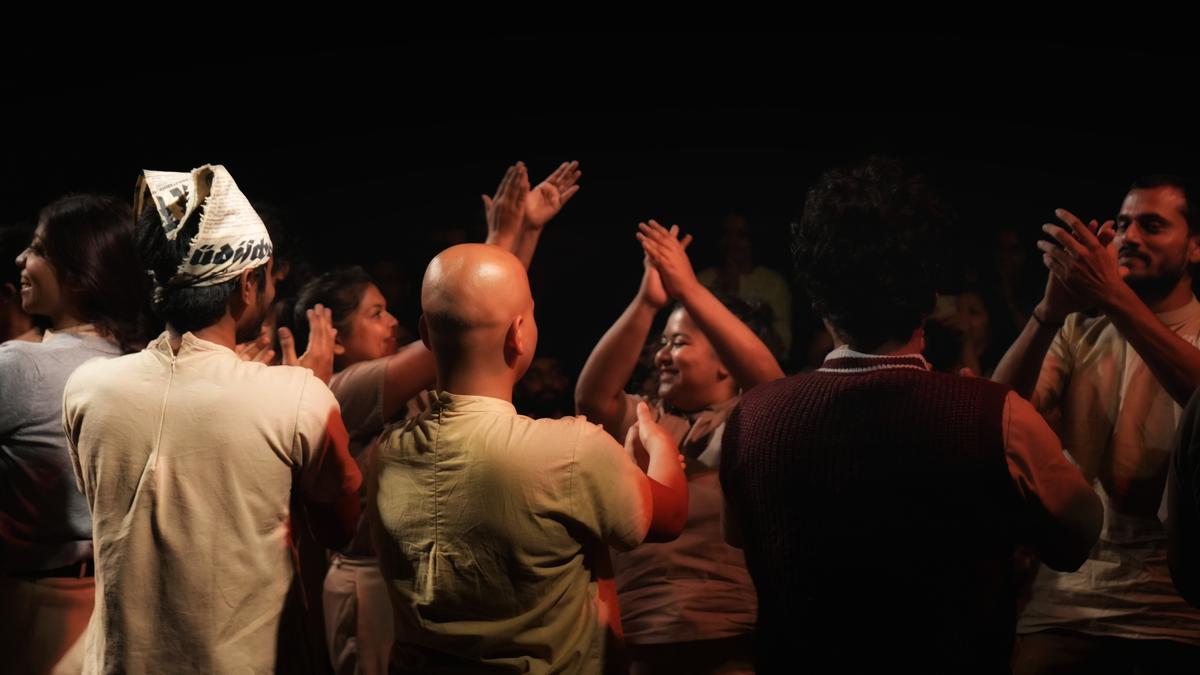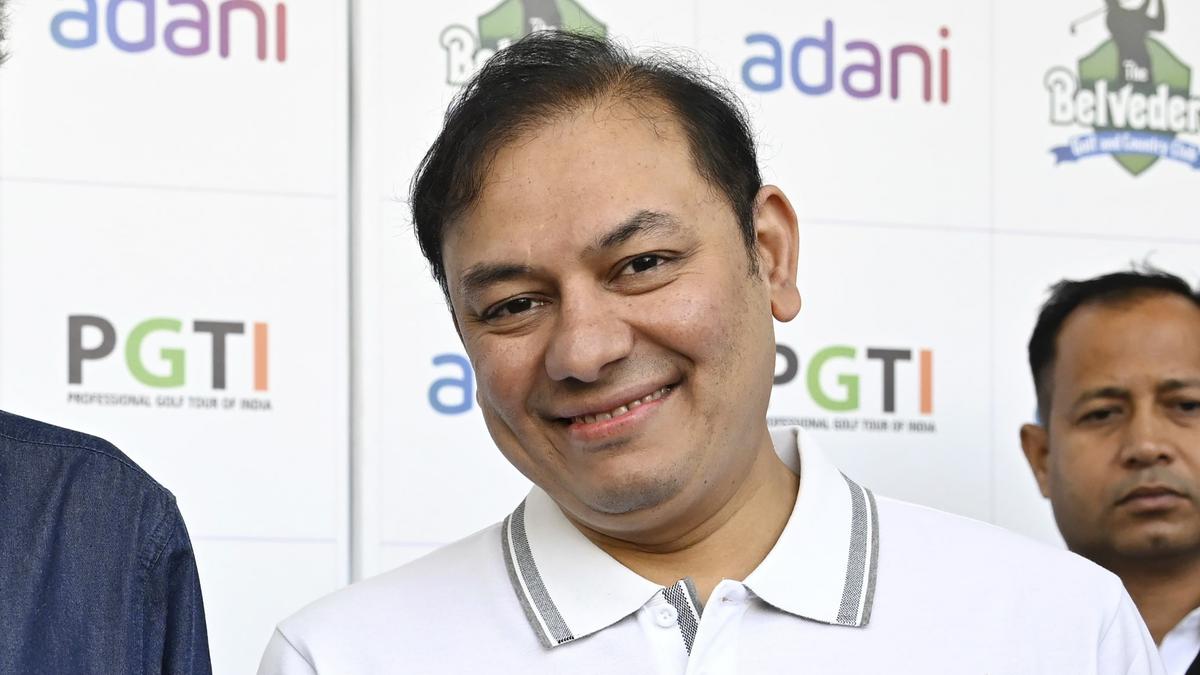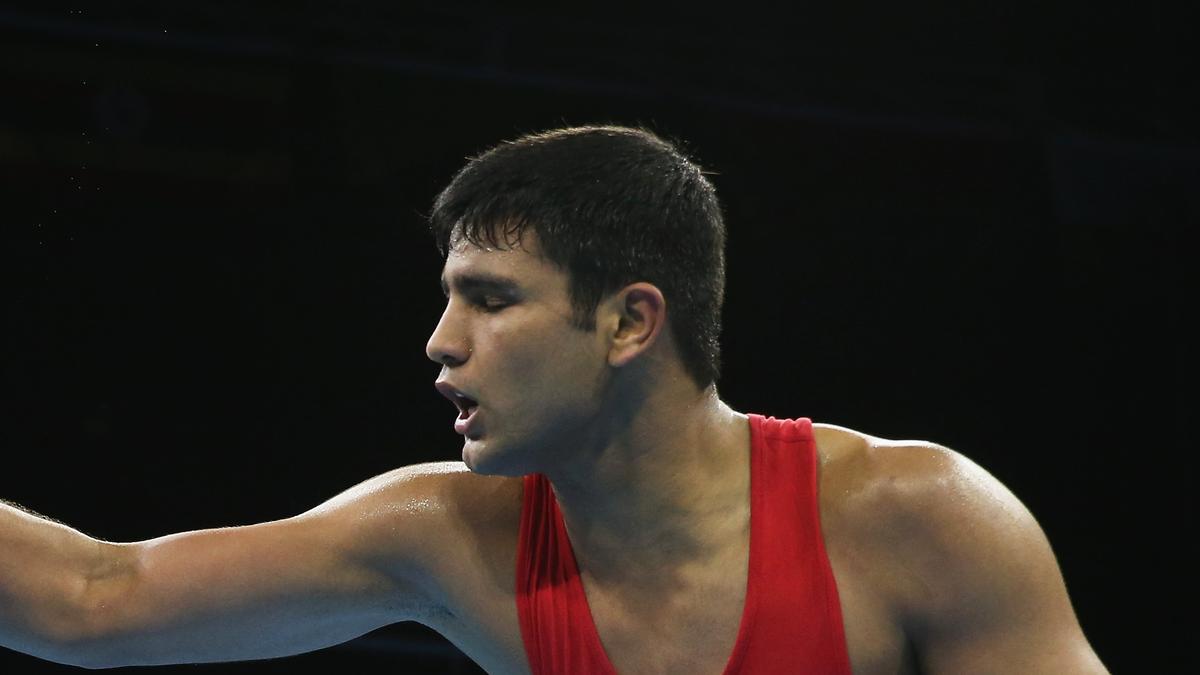
A rehearsal session at Drama School Mumbai.
From studying theatre at Wesleyan University in Connecticut and Birkbeck College in London to working as an associate executive producer with Zarina Mehta and Ronnie Screwvala at UTV, to becoming the Director (Strategy and Vision) at Drama Schools Foundation Mumbai (DSFM), Jehan Manekshaw has come a long way. DSFM is the parent organisation under which thrives a drama school, an e-learning initiative for aspiring theatre makers, a theatre education initiative in schools, a corporate training initiative and more.
Having been an integral part of Mumbai’s theatre ecosystem for over 25 years, Manekshaw is now channelising his energy towards building ‘Mumbai Theatre District’ — a dream project to “revitalise South Mumbai as a cultural hub for theatre”, like Broadway in New York or London’s West End. “Corporates need to understand the role of art and culture in societal well-being,” he says. “And the government needs to get behind the enabling of spaces where art and culture can be supported.” Edited excerpts from an interview:
Jehan Manekshaw of Drama Schools Foundation Mumbai
Q: How is theatre reinventing itself in the age of Instagram, when audiences seem to have short attention spans?
A: Storytelling has changed from the listenership side or the viewership side because we have to accept the reality of mobile phones. We cannot do a three-hour play anymore. On the other hand, live entertainment does have its place now because people are looking for ways to reinfuse their senses that have become captive to digital devices. Theatre is allowing people to connect deeply. It is the root form or medium of storytelling. It came much before cinema arrived.
Think of how much smarter and more enabled a content creator would be if they had a theatre background with strong foundations in the fundamentals of scene, emotion, acting, and performance. I have been thinking of bringing some really good theatre makers and content creators to jam and see what comes out of it. People have been saying that theatre is dead, but it just won’t die. It could take on a new avatar, but it won’t die.
Q: People who do not come from wealthy families usually find it very hard to sustain themselves doing theatre. How does the Drama School Mumbai, of which you are the co-founder, equip students to be financially secure? What kind of opportunities open up after they graduate?
A: I’ll be honest. It’s not easy paying for the course itself. It costs around ₹6 lakh per student. We try and find as many benefactors as possible to give student scholarships. Additionally, the drama school itself gives bursaries and discounts to help students bridge the gap. It is not an MBA programme, so there is no immediate campus placement at the end. They have to go out and freelance, so it is a struggle. But, in Mumbai, they find all kinds of jobs alongside pursuing theatre. They do ad films, they become assistant directors on movie sets. Some take up writing gigs and digital assignments.
We have alumni leading corporate training workshops using theatre. We also have alumni who become poets, storytellers and spoken word artists. Many go back to their hometowns and launch their own initiatives. One of our students has become a theatre godfather in Mysuru. Another has started an evening drama school in Ahmedabad. The ripple effect is lovely. We hope these students enrich society in their own way.
Q: Psychologists often speak of urban loneliness as an epidemic where people feel disconnected from themselves and each other. What role can theatre play in this scenario?
A: Theatre is about connection, about not feeling alone. The theatre-making and rehearsal process is about holding space and allowing people to be themselves. In this, there is safety and healing. Theatre is also used in arts-based therapy. The work of Brazilian theatreperson Augusto Boal, in particular, has been quite powerful. His theatre is the kind where people get to express what they feel and think, and share why they are making certain decisions. They feel both seen and heard.
Training as a theatre-maker also teaches you to be resilient, to go with the flow, and to adapt to change. For example, if you are on stage, and something doesn’t go quite as planned, you have to carry on with the show. I feel these life skills are much more important than making a play.
Q: What are the new directions that theatre is taking in India, in terms of spaces where audiences can come and watch a play?
A: Theatre-makers are saying that I want to tell a story and I want a bunch of people to watch. You are getting to experience theatre in small studio spaces in the suburbs. That’s where these stories can be told. Instead of telling makers what kind of stories to tell, we help them discover what they really care about so that they can tell their own stories in an authentic way. We teach them craft. We also have a production grant for alumni in the name of the late Niloufer Sagar, who taught at Drama School Mumbai. Thanks to her family, alumni get funding to write, direct and produce plays. Many of these have been staged in smaller studio spaces.
The interviewer is a journalist, educator and literary critic.
Published – June 05, 2025 04:46 pm IST



